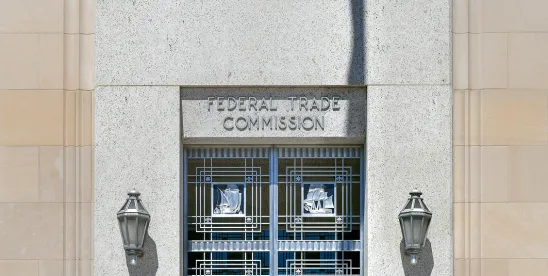The district court’s decision has a nationwide effect. The FTC is very likely to appeal to the Fifth Circuit. Meanwhile, employers need not concern themselves for now with the rule’s notice obligations, and the FTC’s purported nationwide bar on noncompetes is ineffective. Employers do, however, need to remain mindful of the broader trend of increasing hostility to employee noncompetes.
The Court’s Decision
On April 23, the FTC voted 3-2 to publish a final rule with sweeping effects, purporting to bar prospectively and invalidate retroactively most employee noncompete agreements. The court’s decision addressed cross-motions for summary judgment on the propriety of the FTC’s rule. The court denied the FTC’s motion and granted the plaintiffs’ motion for two reasons.
First, the court held that the FTC lacks substantive rulemaking authority with respect to unfair methods of competition under Section 6(g) of the FTC Act. In reaching its holding, the court considered the statute’s plain language, Section 6(g)’s structure and location within the FTC Act, the absence of any penalty provisions for violations of rules promulgated under Section 6(g), and the history of the FTC Act and subsequent amendments. Because the FTC lacked substantive rulemaking authority with respect to unfair methods of competition, and hence authority to issue the final noncompete rule, the court did not consider additional arguments regarding the scope of the FTC’s statutory rulemaking authority. Notably, the court did not consider whether the final rule could overcome the major questions doctrine.
Second, the court held that the FTC’s final noncompete rule was arbitrary and capricious under the Administrative Procedure Act (APA) because it was “unreasonably overbroad without a reasonable explanation” and failed to establish “‘a rational connection between the facts found and the choice made.’” The court heavily discounted studies that the FTC had relied upon that purported to measure the impact of statewide noncompete bans because no state had ever enacted a ban as broad as the FTC’s ban: “[t]he FTC’s evidence compares different states’ approaches to enforcing non-competes based on specific factual situations — completely inapposite to the Rule’s imposition of a categorical ban.” “In sum, the Rule is based on inconsistent and flawed empirical evidence, fails to consider the positive benefits of non-compete agreements, and disregards the substantial body of evidence supporting these agreements.” The court further held that the FTC failed to sufficiently address alternatives to issuing the rule.
In terms of a remedy, the court “set aside” the FTC’s final noncompete rule. The “set aside” language is drawn verbatim from the APA. The court noted that the FTC’s argument that any relief should be limited to the named plaintiffs in the case was unsupported by the APA. Instead, the court noted that its decision has a nationwide effect, is not limited to the parties in the case, and affects all persons in all judicial districts equally.
Further Litigation
In addition to a likely FTC appeal to the Fifth Circuit, two other cases are pending that likewise challenge the FTC’s final noncompete rule. First, in ATS Tree Services v. FTC, pending in the Eastern District of Pennsylvania, the district court previously denied the plaintiff’s motion for a preliminary injunction. Second, in Properties of the Villages, Inc. v. FTC, pending in the Middle District of Florida, the court enjoined the FTC from enforcing the rule against the named plaintiffs. A final judgment in one of these cases that differs from the result in the Northern District of Texas could eventually reach the courts of appeals and potentially lead to a circuit split to be resolved by the US Supreme Court.
Takeaways for Employers
For now, the FTC’s noncompete rule has been set aside on a nationwide basis, and employers need not comply with the rule’s notice obligations. Noncompetes remain enforceable to the same extent they were before the FTC promulgated its final rule. Depending on how further litigation evolves, the rule could be revived, a temporary split in authority could arise leading to confusion where the rule is enforceable in certain jurisdictions but not in others, or the rule will remain set aside.
An important part of the court’s decision is its rejection of the FTC’s factual findings, which were made in support of the rule, as poorly reasoned and poorly supported. As we discussed in our prior client alerts, we anticipate that employees may cite the FTC’s findings to support challenges to enforceability under state law. The court’s analysis of the FTC’s factual findings may substantially undermine the persuasive authority of the FTC’s findings.
Employers should anticipate that noncompete enforcements in the coming years will remain uncertain as courts, legislatures, and government agencies continue to erode the legal and policy justifications for employee noncompetes. This counsels in favor of a “belt and suspenders” approach for employers to protect their legitimate business interests rather than relying solely on noncompetes.






 />i
/>i
